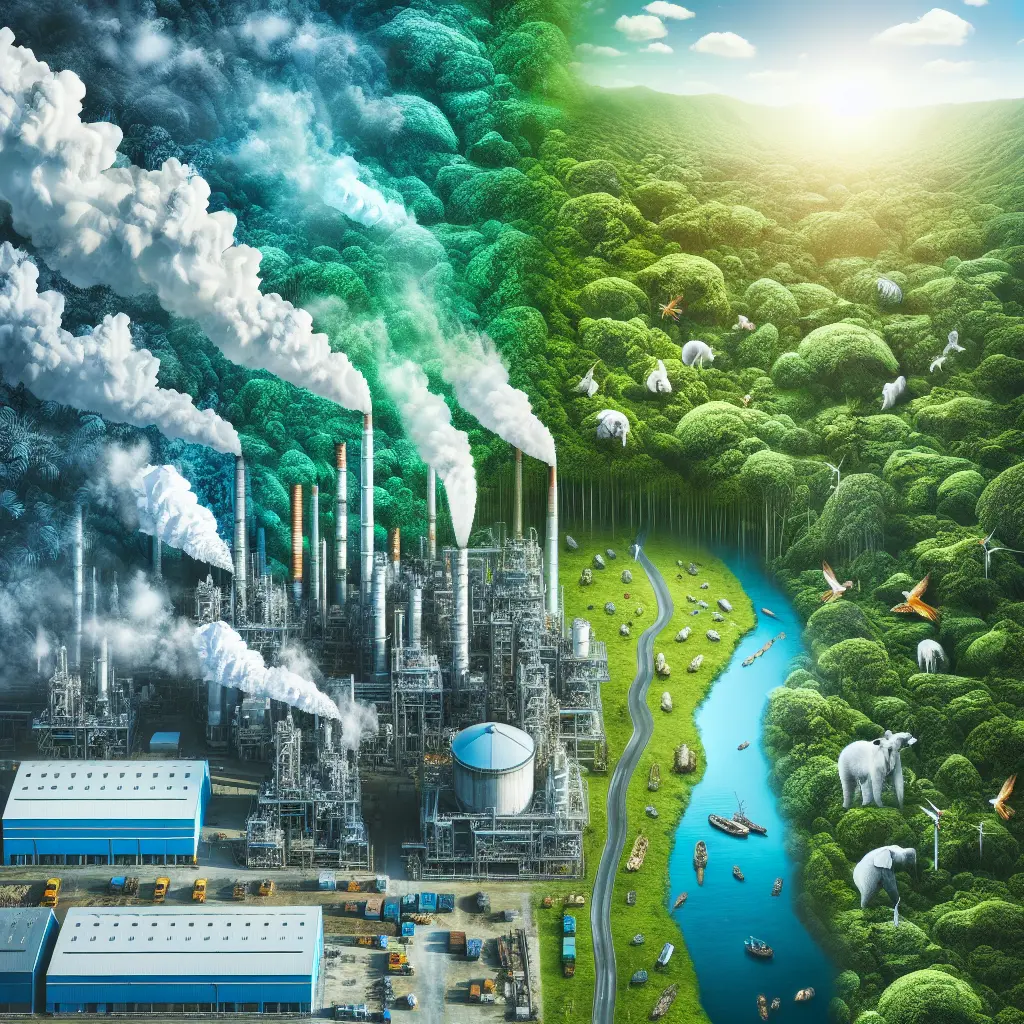
Understanding the profound influence of our daily activities on the environment has never been more critical. Each action, whether big or small, plays a part in shaping the ecological impact we leave behind. In this exploration of environmental impact, we delve into how our everyday decisions contribute to environmental degradation, pollution effects, and more critically, what measures we can adopt to mitigate such impacts.
The Scope of Our Environmental Footprint
The term 'environmental footprint' refers to the measure of human demand on nature. It encompasses various aspects such as the carbon footprint, which measures the total amount of greenhouse gas emissions caused directly or indirectly by an individual or organization. According to the Environmental Protection Agency (EPA), the average carbon footprint for a person in the United States is about 16 tons, one of the highest rates globally (EPA, 2021). This statistic alone underscores the significant role individual and collective action can play in reducing emissions.
Greenhouse Gas Emissions and Climate Change Impact
Greenhouse gases, primarily carbon dioxide, methane, and nitrous oxide, trap heat in the atmosphere, leading to global warming and climate change. The Intergovernmental Panel on Climate Change (IPCC) reports that human activities have increased atmospheric CO2 concentrations by about 47% since the Industrial Revolution began (IPCC, 2021). This rise in greenhouse gases has been linked directly to climate change, affecting biodiversity, weather patterns, and sea levels worldwide.
Pollution Effects and Environmental Degradation
Pollution continues to be a major factor in environmental degradation. Be it air, water, or soil pollution, the effects are detrimental not only to natural habitats but also to human health. For instance, air pollution causes an estimated 7 million premature deaths worldwide every year (WHO, 2021). Chemicals and waste products released into water bodies affect both aquatic life and the quality of drinking water. It's imperative that stricter regulations and sustainable practices are adopted to curb pollution.
The Dire Consequences of Biodiversity Loss
Biodiversity loss is another alarming issue linked to our environmental impact. Human activities, including deforestation, pollution, and urbanization, are leading to habitat destruction and species extinction at an unprecedented rate. The World Wildlife Fund (WWF) states that Earth is losing biodiversity at a rate seen only during mass extinctions (WWF, 2020). This loss threatens ecosystem resilience, human food security, and medicinal resources.
Deforestation Impact: A Global Concern
Deforestation primarily for agriculture, logging, and urban expansion continues to pose severe threats to environmental stability. Forests play a critical role in carbon storage; they absorb CO2 from the atmosphere and help reduce the effects of climate change. However, when these forests are cut down, not only is this carbon storage capacity lost, but the carbon stored in trees is released back into the atmosphere. According to the Food and Agriculture Organization (FAO), around 10 million hectares of forest are lost each year (FAO, 2020).
Mitigating Our Ecological Impact
Addressing these environmental issues requires concerted efforts both at individual and systemic levels. Reducing our carbon and environmental footprints can be achieved through simple daily practices like reducing waste, recycling, using public transportation, and conserving energy. Furthermore, supporting policies that protect the environment and reduce emissions is crucial for sustainable development.
Recent Innovations and Sustainable Practices
Innovations in technology and sustainable practices offer hope in mitigating environmental impacts. For example, renewable energy technologies such as solar and wind power significantly reduce dependence on fossil fuels and their associated emissions. Additionally, sustainable farming practices help reduce deforestation impact, promote biodiversity, and decrease pollution.
Global Movements and Policy Actions
Globally, movements like Fridays for Future have brought attention to urgent climate actions needed at governmental levels. Policy actions such as the Paris Agreement aim to limit global warming to well below 2 degrees Celsius. These global commitments are essential for meaningful changes in our environmental impact trajectory.
Personal Reflections and Actions
As individuals, becoming more conscious of our environmental footprint is imperative. Opting for products that are environmentally friendly or engaging in community clean-up activities are steps towards a more sustainable future. Each small change contributes to a larger positive impact on our planet.
In Conclusion
The intricate link between our daily lives and environmental impact cannot be overstated. From the air we breathe to the water we drink and the climate we rely on, everything is interconnected. Reducing our environmental footprint, understanding the implications of greenhouse gas emissions, curbing pollution effects, halting biodiversity loss, and reversing deforestation impact are monumental tasks but not insurmountable. With informed choices and sustainable practices, we can all contribute to a healthier planet.
Remember, every small step counts towards making a big difference. Let’s strive together for a sustainable future where our environmental impacts are minimized for generations to come.
Authored by Emily Smith